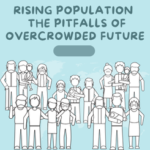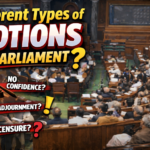SDG Index 2023-24: Surging Forward Amid Global Challenges

NITI Aayog released SDG India Index 2023-24. The Index, fourth edition, measure national and subnational progress on the Sustainable Development Goals(SDG). India is commitment to the SDGs since adopting the 2030 Agenda on Sustainable Development. The Index computes goal-wise scores on the 16 SDGs for each State and UT. It relies on 113 indicators to assess a state’s performance.
- The composite score for 2023-24 is 71. It was 57 in 2018 and 66 in 2020-21. It is supported by progress made in poverty reduction, economic growth, and climate action.
- SDG goals 1 (No Poverty), 8 (Decent Work and Economic Growth), 13 (Climate Action) are now in the ‘Front Runner’ category (a score between 65–99).
- Zero Hunger goal is increased by 5 points.
- Goals like “Gender Equality” and “Peace, Justice, and Strong Institution” saw the smallest increase in points.
- “Reduced Inequalities” goal saw a marginal drop. It reduced to 65 in 2023-24 from 67 in 2020-21
- Uttarakhand and Kerala have taken the top spot among states in SDG India Index 2023-24
- The state of Bihar emerged as a laggard followed by Jharkhand.
- Punjab, Manipur, West Bengal, and Assam recorded the highest increase of points compared to 2021-22 tally.
The report highlights government flagship programmes that facilitated SDG achievements.
- PM Awas Yojana (PMAY),
- Toilets & Community Sanitary Complexes
- LPG connections under PM Ujjwala Yojana,
- Tap water connections under Jal Jeevan Mission
- Ayushman Bharat -Pradhan Mantri Jan Arogya Yojana
- the National Food Security Act (NFSA)
- Ayushman Arogya Mandir which offer primary medical care and provide affordable generic medicines
- Direct Benefit Transfer (DBT)
- The Skill India Mission
- PM Mudra Yojana
- Start Up India and Start Up Guarantee schemes assisting the youth
- The Saubhagya scheme for access to electricity
- Improvement in digital infrastructure with reduced internet data costs by 97% which has in turn positively affected and fostered financial inclusion
LEARNING FROM HOME/ WITHOUT CLASSES/ BASICS
SDG
Sustainable Development Goals call for worldwide action among governments, businesses and civil society to end poverty and create a life of dignity and opportunity for all. An important development framework to achieve success in a number of areas such as reducing poverty and improving health and education in developing countries; Earlier for this purpose (2000 and 2015), the Millennium Development Goals (MDGs) provided the framework. The SDGs succeed the MDGs. The year 2024 will be the ninth anniversary of the adoption of SDGs by 193 countries at the UN General Assembly. The SDGs were born at the United Nations Conference on Sustainable Development in Rio de Janeiro in 2012. It was in 2015 when SDG were implemented.
The goals are universally applicable in developing and developed countries alike. Governments must translate them into national action plans, policies and initiatives. Actions should reflect the different realities and capacities countries possess.
17 SDG
The 17 Sustainable Development Goals (SDGs), or the Global Goals. A universal call for action to end poverty, protect the planet and ensure that all people enjoy peace and prosperity. 2030 is the deadline for achieving SDG
No Poverty; Zero Hunger; Good Health and Well-being; Quality Education; Gender Equality ; Clean Water and Sanitation; Affordable and Clean Energy; Decent Work and Economic Growth; Industry, Innovation and Infrastructure; Reduced Inequalities; Sustainable Cities and Communities; Responsible Consumption and Production; Climate Action; ife Below Water; Life on Land; Peace, Justice and Strong Institutions; Partnerships for the Goals.
MEANING OF SUSTAINABLE DEVELOPMENT AND ITS RELEVANCE
Development that meets the needs of the present, without compromising the ability of future generations to meet their own needs.”
It can create a healthier, safer, and more productive environment. It will help in protecting natural resources, mitigate and adapt to climate change and promote biodiversity.






0 Comments